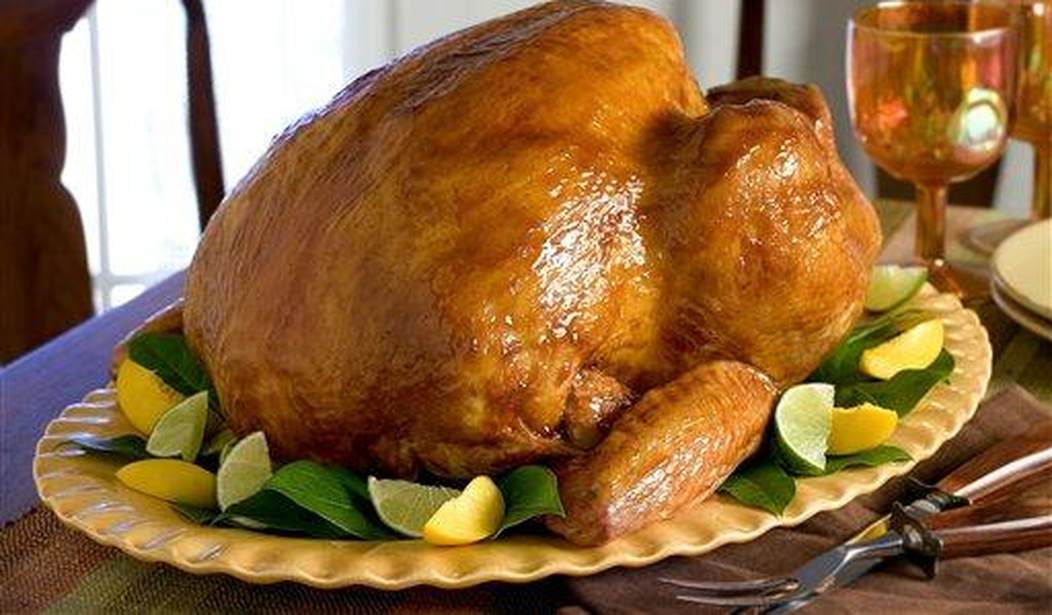I'm thankful.
Yes, we've got the pandemic, lockdowns, a worsening deficit, etc.
But we still live in a relatively free country at the most prosperous time in human history.
The pandemic showed that when people are faced with crises, we adjust. Restaurants switched to takeout and outdoor dining. Grocery stores began curbside pickup. Companies mass-produced masks, hand sanitizer, ventilators and, now, vaccines. I hide from COVID-19 by staying home; yet, thanks to new services such as Zoom, I can research this column and make my weekly videos from my couch.
That's brought benefits. I no longer have to deal with traffic congestion.
Traffic jams are a good example of what ecologist Garrett Hardin called the "Tragedy of the Commons."
Because roads are free, more people drive, and roads are often congested. If roads were subject to "peak-load pricing, charging higher prices during times of peak demand and lower prices at other times," Hardin wrote, then we'd have fewer traffic jams.
I bring this up now, before Thanksgiving, because a similar Tragedy of the Commons nearly killed the Pilgrims. When they landed at Plymouth Rock, they started a society based on sharing.
Sharing sounds great.
But sharing, basically, is collective or communal farming, which is socialism. Food and supplies were distributed based on need. Pilgrims were forbidden to selfishly produce food for themselves.
That collective farming was a disaster. When the first harvest came, there wasn't much food to go around. The Pilgrims nearly starved.
Recommended
Since no individual owned crops from the farm, no one had an incentive to work harder to produce extra that they might sell to others. Since even slackers got food from the communal supply, there was no penalty for not working.
William Bradford wrote in his "History of Plymouth Plantation" that the colony was ridden with "corruption" and "much was stolen both by night and day, before it became scarce eatable."
People eager to provide for their families were less eager to provide for others. Bradford wrote, "young men, that were most able and fit for labour, did repine that they should spend their time and strength to work for other men's wives and children without any recompense."
Ultimately, said Bradford, shared farming "was found to breed much confusion and discontent and retard much employment that would have been to their benefit and comfort."
The Pilgrims "begane to thinke how they might raise as much corne as they could, and obtaine a beter crope (so) they might not still thus languish in miserie."
Languishing in misery is what people in Venezuela do now.
The Pilgrims' solution: private property.
In 1623, the collective farm was split up, and every family was given a plot of land. People could grow their own food and keep it or trade it. "It made all hands very industrious, so as much more corn was planted than otherwise would have been." wrote Bradford. "Women now went willingly into the field, and took their little ones with them to set corn; which before would allege weakness and inability."
The Pilgrims flourished because they turned to private property.
So, this Thanksgiving, be grateful for private property, a foundation of capitalism.
Your grocery may not have the small turkey you wanted this year, but they have much more of what you want than people in the Soviet Union ever got.
When you're shopping for dinner or stocking up for Lockdown 2.0, be glad that you have so many options available.
If government controlled the production of turkeys and toilet paper, this would be a very, very unhappy Thanksgiving.
John Stossel is author of "Give Me a Break: How I Exposed Hucksters, Cheats, and Scam Artists and Became the Scourge of the Liberal Media."

























Join the conversation as a VIP Member